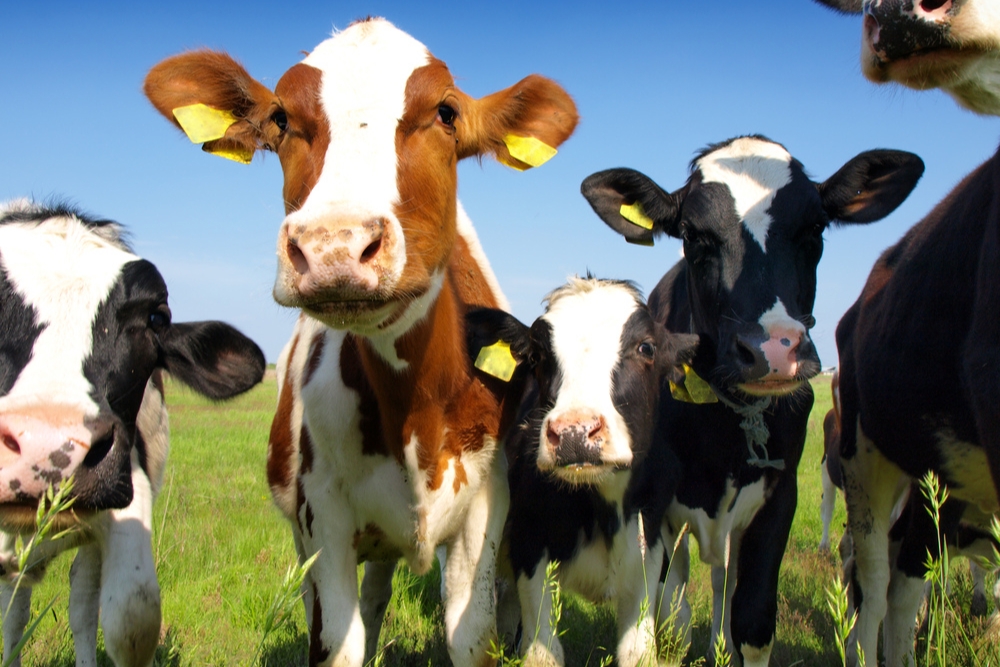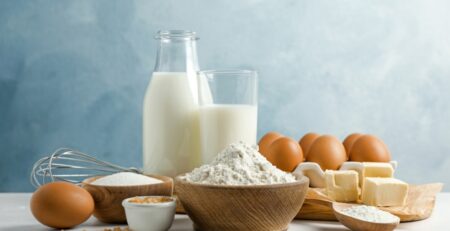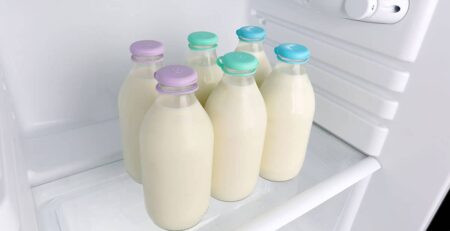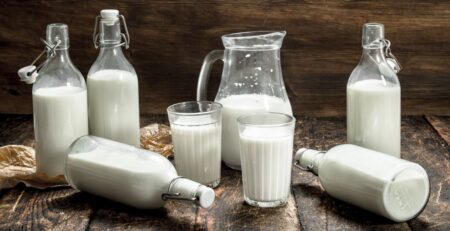Milk has long been a staple in our diets because it’s a cheap, simple way to consume nutrients and vitamins. Combined with its versatility, this has helped it retain its position as one of the world’s most widely consumed food and drink items.
But, with the growth of the global economy, food and drink imports and exports became more commonplace throughout the 1960s. While this may have temporarily resulted in low-cost, accessible dairy products at Milk Topz, we believe some significant benefits of using local milk are often overlooked.
With that in mind, we look into some advantages of buying local milk, from better ingredients to a smaller carbon footprint.
Fresher Produce
Perhaps the most obvious reason to buy your milk locally is that you’re guaranteed a fresher product. While the pasteurisation process and innovations surrounding long-life products have helped keep milk stable and usable for longer, there isn’t any replacement for the taste of fresh-as-possible milk products.

A study by the American Dairy Science Association found that milk stored in plastic under artificial light for extended periods tasted much worse. Extensive research found that simply put, consumers like the flavour of fresh milk.
When compared with powdered or long-life alternatives, fresh milk also carried more nutritional value. As milk is stored under lights or by powdering, the bioactive components become less potent. This means that the natural goodness (vitamins B5 and B12, phosphorus and selenium) become less effective in keeping your body fit and healthy.
The fresher the milk you’re consuming, the healthier and tastier the milk is likely to be, and one of the benefits of buying local milk is that it’s a great way to ensure the maximum level of freshness.
Reduced Carbon Footprint
The cost of importing foods to the UK isn’t only financial and environmental. If your ingredients have come a long way, they may carry a heavy carbon footprint. The Department of the Environment, Food and Rural Affairs (DEFRA) found that 25% of all miles covered by heavy goods vehicles in the UK are a result of food transportation, which they estimate contributes 19 million tonnes of CO2 annually – roughly the same as 5.5 million typical family cars.
This number only increases if the product has come by plane, which typically generates ten times as much carbon as road transportation. As perishable products, dairy goods are often shipped as quickly and directly as possible, meaning that air freight is often the chosen method of transportation.
A great example of the push towards a greener dairy option is National Farmers’ Union (NFU) Cymru’s ambitious push towards net zero. They aim to be carbon neutral by 2040, ten years ahead of the UK Government deadline, and utilising local produce and farming communities is at the heart of their strategy.
Naturally, if you purchase your milk and other dairy products locally, this number is drastically reduced. The faster a product moves from farm to table, the lower the carbon footprint is likely to be. This means you can enjoy your tasty, fresh milk with a clearer, green conscience!
Benefits Your Local Community
By purchasing your milk and dairy locally, you can help support your local community. When buying products imported from overseas, the money spent is leaving your local area, and the benefits of your spending aren’t nearly as tangible. Instead, buying locally from farms and dairies in your community sees the money reinvested in jobs, families and public amenities that you and your community are more likely to benefit from.

To support this, a growing number of supermarkets are prioritising local produce to help the people who form their customer base. This shows that the advantages of using locally produced milk go far beyond the kitchen table and can benefit the community.
Supports Higher Animal Welfare Standards
Perhaps one of the less-known benefits of buying local milk is that it tends to ensure a higher level of animal welfare. Produce from British farms often features the Red Tractor logo, which means that the item has been sourced responsibly and safely and comes from crops and animals that have been well cared for. Their standards include daily milking for cows to minimise their pain and distress and ensuring that animal housing is hygienic and comfortable.

This means the housing must be constructed and maintained to provide a spacious, safe and secure environment for cows; it must be well-ventilated and clean with safe, suitable and legal bedding in lying areas. There are also stipulations regarding diet, transportation and medical care, all of which can be seen on the Red Tractor website.
While it’s not only local farms that treat their animals with care and respect, it can be challenging to identify mistreatment or bad practise when purchasing from international suppliers due to regulations differing between countries. So, one of the advantages of buying local milk endorsed by the Red Tractor is as a shortcut to ensure that the animals have received the very best of care.
Keep your locally produced milk fresh with Milk Topz
If you’ve made the change to a local milk delivery service, or if you’ve started purchasing milk in glass bottles, Milk Topz is the product for you. They’re leakproof, reusable milk bottle tops made from environmental silicone, making them an eco-friendly and cost-effective way to keep your milk fresher for longer.
Take a look at our multipacks here or at our blog for fun milky recipes, health tips and more!












